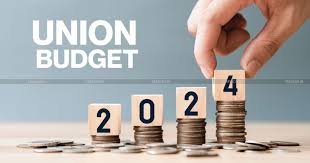NEW DELHI: Coming on the back of not-so-favourable results in the General Election, the Modi government is expected to offer several incentives in its 11th Budget to be presented today, while striking a fine balance between populism and fiscal prudence to keep the economy on a growth trajectory.
Finance Minister Nirmala Sitharaman’s seventh consecutive Budget breaks the record of former PM Morarji Desai of presenting six consecutive Budgets (five full and one interim) from 1959 to 1964.
Top on the list of stakeholders’ demands is tax concessions for the middle class, which may come either in the form of raising the basic exemption limit or rejigging tax brackets. On the receipt front, says Sonal Badhan, economist with the Bank of Baroda, certain reductions can be expected if the government decides to relieve the burden of individual taxpayers and give incentives for savings.
To encourage people to buy homes, tax concession on interest may be increased and customs duties on finished products of certain items may again be raised to correct the inverted duty structure, says the economist. This will be aided by additional fiscal space made available by Reserve Bank of India’s more-than-estimated surplus transfer and hopes of better-than-expected GDP growth this year. A normal monsoon, gradual decline in inflation, softening of interest rates and government’s measures to boost consumption and investment will aid growth this year.
It is expected that the Budget will remain committed to the path of fiscal consolidation, and inch closer to the FY26 target of less than 4.5 per cent. According to industry bodies CII and FICCI, the fiscal deficit target of 5.9 per cent of GDP for 2023-24 should be maintained, and in fact can be further reduced to around 5.4 per cent of the GDP for 2024-25.
Both industry bodies say enhanced spending on MGNREGA, PM-Kisan and PMAY can be expected. “We also expect capex at Rs 11.2-11.3 lakh crore for this year, to help crowd-in private investments. Markets will keep a watchful eye on borrowings, which can change in case the fiscal deficit is altered from 5.2 per cent as per the Interim Budget. Also, the sharing of the total borrowings between market and small savings would be of interest,” Bank of Baroda’s Badhan added.


